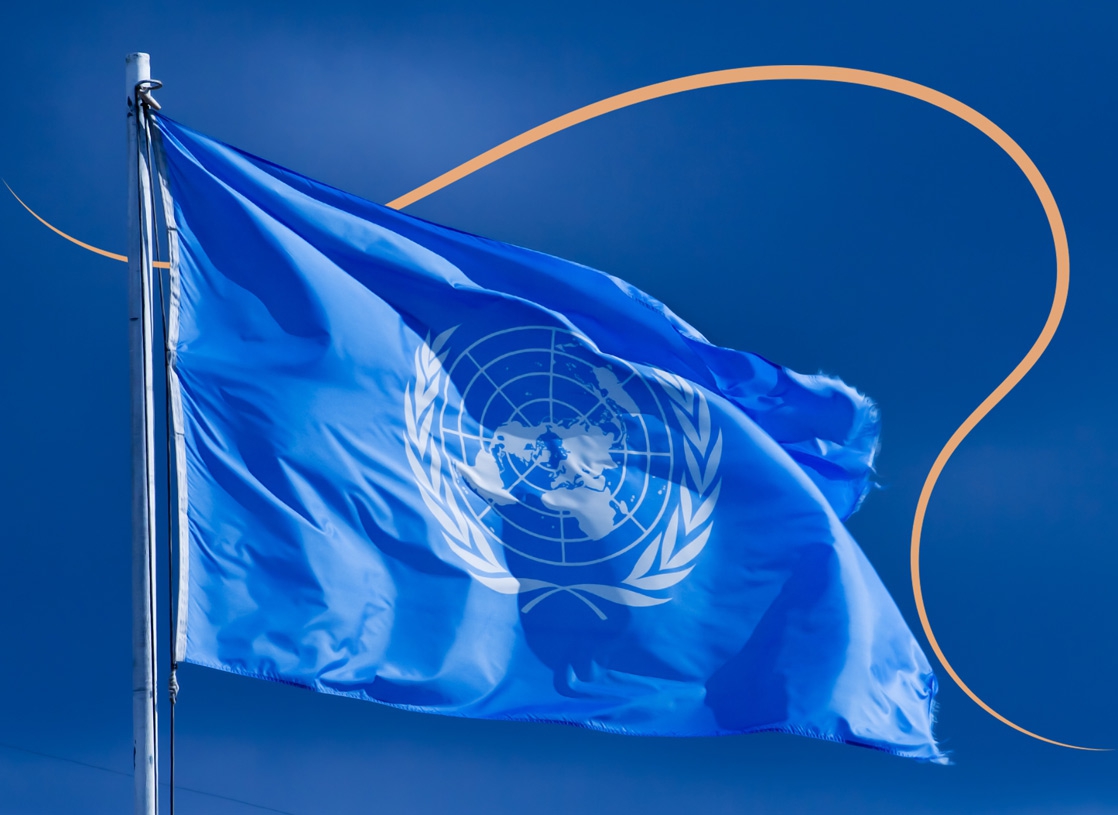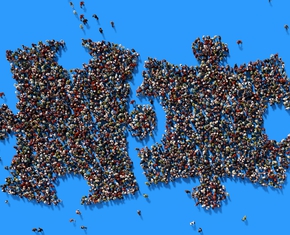The views expressed in our content reflect individual perspectives and do not represent the authoritative views of the Baha'i Faith.
Whenever I discuss the Baha’i principle of the oneness of humanity, I hear voices raised in support of the United Nations. People usually ask: can the UN ever unite us?
Decades of my professional life revolved around the UN, and I have immense respect for many of the professionals on its roster, both past and present. The specialized work of many of its agencies and institutions has often been ground-breaking, and the contributions of the International Monetary Fund and the World Bank have been crucial, even though both are long overdue for reform.
Register for a Bahai.chat conversation with Hugh Locke on ‘Navigating the Double Epoch’ Saturday February, 27 2021
However, in its current state, the UN cannot fully answer the world’s vexing, multivariate problems.
RELATED: Navigating the Double Epoch
It can’t handle those problems because the United Nations has a fundamental structural problem in its design. Initially conceived as a collection of individual countries that vote on every action, from the mundane to the profound, the UN’s actions are constrained by the political and economic interests of each member state. Today, however, the institution faces a monumental challenge to become more than it is now, because no member nation will ever give up the power to protect itself at the expense of the others—not to mention that the veto power of the five permanent members of the Security Council is beyond arcane.
There have been several serious attempts to reform the UN, and so far all have met the same inglorious demise. Most iterations of proposed reform have included recommendations that member countries cede a degree of individual power and sovereignty for the sake of the whole. The answer is always variations of no, never, or, “you’ve got to be kidding.”
However, one possible scenario could save the UN from oblivion. It is outlined in a new book, Global Governance and the Emergence of Global Institutions for the 21 Century, published by Cambridge University Press. Three authors—Augusto Lopez-Claros, Arthur L. Dahl and Maja Groff, an economist, environmentalist and specialist in international law, respectively—have applied the oneness principle from the Baha’i teachings to the challenge of significantly reforming the entire United Nations system. Only a framework of global unity, they conclude, can possibly make the UN more effective.
Toward that same end, the democratically-elected global leadership body of the world’s Baha’is, the Universal House of Justice, wrote in the introduction to Baha’u’llah’s Most Holy Book:
Our world has entered the dark heart of an age of fundamental change beyond anything in all of its tumultuous history. Its peoples, of whatever race, nation, or religion, are being challenged to subordinate all lesser loyalties and limiting identities to their oneness as citizens of a single planetary homeland. In Baha’u’llah’s words: “The well-being of mankind, its peace and security, are unattainable unless and until its unity is firmly established.”
Transformation by Idea
So exactly how does an idea like the oneness of humanity have even the slightest chance of changing the current order of things? I would like to share one historic example of a similar process in action, and one that has always fascinated me.
Most of us do not question that the world is organized into countries with set boundaries. But have you ever wondered how that system began? While this particular bit of history is specific to one geographic region and one historic period long past, it is nonetheless a relevant and timely corollary because of the organizing power of a simple and profound idea.
By the mid 1600s, much of Europe had been embroiled in a series of wars for over thirty years. At one level, the protagonists were a bunch of princes, dukes, emperors and ruling families, each allied to either the Protestant or Catholic cause. In reality, most of the warring parties were using these religious affiliations as cover to continuously raid each others’ territories for reasons of land, commerce and power.
After decades of bloody war and countless lives lost, both sides realized they had reached a stalemate and that decades more fighting would never result in victory. Meanwhile, rampant disease, severe food shortages and widespread poverty throughout the entire area (déjà vu anyone?) could not be addressed because solutions were only viable if they were regional, and not just state by warring state.
It was at this point that the parties called a time out and met in a region called Westphalia, in what is now Germany. The resulting peace conference was convened in 1644 and involved representatives of close to 200 disparate groups. It took six months just to work out the seating chart, and another three and a half years to reach a consensus.
Up to this point, Europe did not have countries with fixed boundaries. Instead, it consisted of a loose collection of territories and kingdoms all fighting each other. Boundary demarcations were the equivalent of dotted lines on maps du jour, continuously redrawn based on who was winning or losing at any given time.
RELATED: Conceiving a World Commonwealth — With the Politics of Love
Into this 1600s-era seemingly insoluble impasse came a very new and radical idea: reorganizing loosely defined territories into countries with fixed boundaries. The Peace of Westphalia, as it became known, agreed on these new fixed boundaries for sovereign nations as a replacement for the previous system, and at the same time set out rules as to how these countries would co-exist. Most historians and scholars recognize the Peace of Westphalia as the basis of the modern international system that has remained in place to this day. Obviously it did not prevent future conflicts (and lots of them), but the system was infinitely better than the constant, ongoing warfare it replaced.
Humanity has now come to a 2020 Westphalia juncture.
The current collection of a few hundred sovereign nations, with so many bent on protecting their own territories at the expense of the whole, is incapable of addressing the great global crises of our time, or the host of other crises poised to make an appearance. While we may always be organized into countries, the question is: how should the countries of the world organize to the benefit of humanity?
In the next essay in this series, we’ll explore that question and look for answers.
















Comments
Sign in or create an account
Continue with Googleor